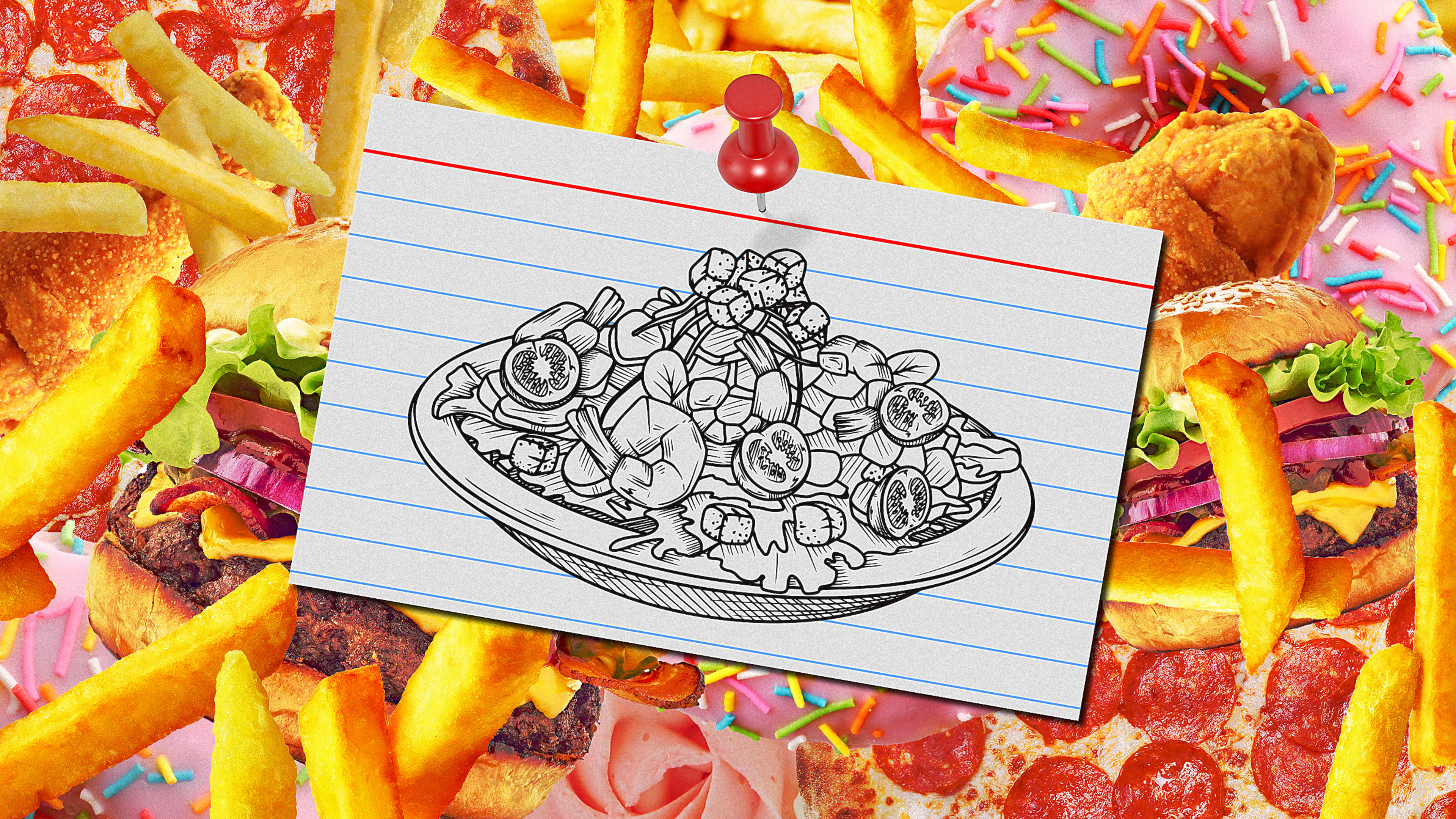Scrolling through recipes on Pinterest, you’d think its 450 million users are health nuts who are obsessed with low-cal dishes. But, as with many things on social media, looks are deceiving.
A new study from George Mason University’s College of Health and Human Services reveals that there’s a stark difference between the recipes that Pinterest users post and those they actually make. While they publicly “like” and “pin” healthy recipes, the dishes they end up cooking are high in fat, sugar, and calories. The researchers say this poses an interesting problem for people interested in public health. Social media has the power to create social norms around promoting a healthy lifestyle, but many people aren’t making the leap into actually living healthier.
The U.S. government puts billions of dollars annually toward trying to shift Americans’ diets, because studies show it can have a powerful impact on improving people’s overall health. It has invested in a National School Lunch program since 1946 and published dietary guidelines to educate Americans. This has led to some successes: Between 2003 and 2016, Americans decreased their daily intake of sugar by 4.8 teaspoons and increased their whole-grain consumption.
In this new paper, published in the Journal of Medical Internet Research, the researchers point out that social media could be another powerful tool in this effort to shape dietary behavior because, well, we’re all on it. In the United States, 98 million people are active monthly users of Pinterest, which is equivalent to 18% of the adult population. The platform has become a popular recipe sharing site, with more than 60% of users reporting that they’d made a new recipe that was inspired by something they saw on the site. “There’s tremendous opportunities in social media to influence healthy behavior,” Hong Xue, the lead researcher, said in a statement. “We’re only beginning to understand its potential and pitfalls.”
Last summer, the researchers analyzed food-related content on Pinterest. (They did not collaborate directly with the platform on this project but simply gathered publicly available comments, captions, photos, and videos from the site.) They found that there’s a culture of promoting healthy recipes on Pinterest: Nutritious recipes that were low in calories, sodium, and sugar, and high in vegetables and lean meats tended to be rewarded with repins and likes, which motivated users to share more of this content. But when the researchers tracked engagement—which they measured in terms of comments and photos or videos of meals people actually cooked—the majority opted for recipes with more sugar and fat.
Social media encourages people to present an aspirational version of themselves to the public, but everyday reality often tells a different story. “They are more likely to adhere to an elite social norm set by celebrities and influencers promoting healthier, low-calorie, clean eating,” said Xue. “We see a very different picture. They’re commenting on and posting finished dish photos of the less healthy recipes.”
The researchers say that the distinction between users posting healthy recipes but cooking unhealthy ones is important for anyone tasked with encouraging healthy habits on social media—which could include the government, doctors, and nutritionists.
So how do they bridge the gap between the users’ aspirations and their actual behaviors? Xue says users tended to comment and engage with recipes that they believed tasted good, and many people seemed to believe that healthy recipes aren’t big on flavor. (Search terms like “tasty” and “delicious” were more likely to lead to unhealthy recipes.) So one solution is to highlight the flavor of a dish, rather than merely how healthy it is. “To change perceptions, public health experts need to make healthy food the treat, and not the other way around.”
Xue also says healthcare organizations and fitness experts shouldn’t exclusively push healthy recipes on social media. Instead, they should take a second look at recipes that are popular among users and see if they can make them more nutritious. “If users are engaging with more unhealthy recipes, then perhaps influencers should offer options for lowering the fat in them, as part of those recipes,” he says.
Recognize your brand’s excellence by applying to this year’s Brands That Matter Awards before the early-rate deadline, May 3.
